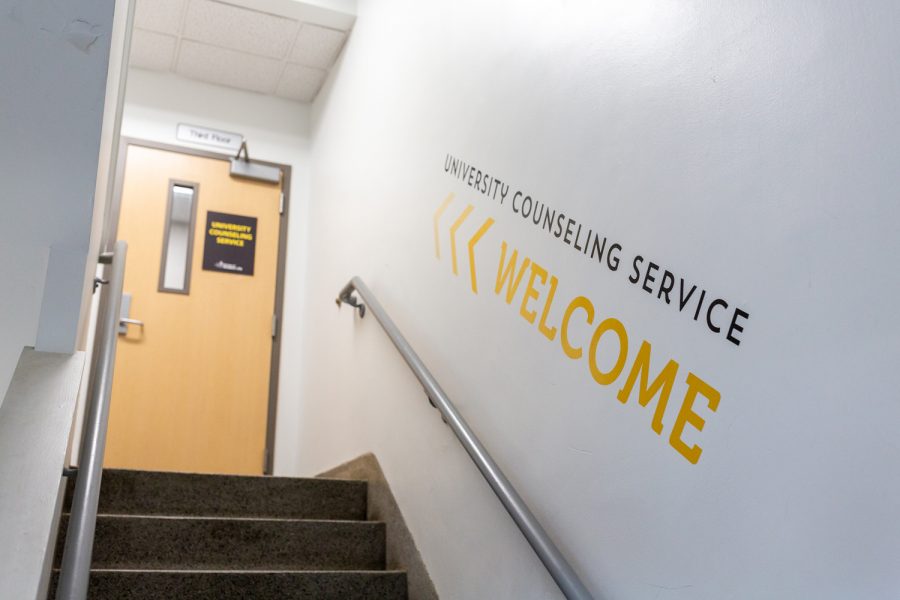UCS survey reveals students thoughts on anxiety, stress management
A recently released UCS survey suggests that a majority of students would like to learn more about anxiety, stress management, and sleep hygiene.
Westlawn Hall at the University of Iowa on Wednesday, Oct. 3, 2018. Westlawn Hal is the location of University Counseling Services. (David Harmantas/The Daily Iowan)
January 23, 2019
Although many college students are probably aware of the high level of stress on their campus, or in their daily lives at school, fewer have probably given thought to the benefits of learning how to prevent or manage those anxieties.
When the University Counseling Service administered an outreach needs assessment over the course of the spring 2018 semester, it discovered that 75 percent of the students believed they would benefit from learning about anxiety management, among other things.
“We have been thinking a lot about our vision,” Counseling Service Assistant Director for Outreach Kelly Clougher said. “We thought it was important we get student voices.”
For the most part, she said, the survey results resemble what college counselors across the nation see with this kind of assessment: a primary concern about anxiety and stress.
“The survey was more outreach and skills and knowing how to manage your anxiety,” Clougher said. “I was really excited to not only see our response rate but that students want more [information] about mental health and psychological well-being.”
According to the findings of the assessment, which were shared via mass email with the students, an additional 60 percent of students believed learning about mental wellness and self-care would be beneficial.
“When we think about managing stress, it is about doing daily things to be more preventative rather than taking a reactionary stance,” Clougher said. “It’s about a consistent practice of maintaining a balanced approach to living.”
RELATED: UI Family Services strives to relieve stress of parenting on busy lives
That could mean students setting aside 30 minutes every day for working out or engaging in deep breathing to combat anxiety, sleep difficulty, etc., Clougher said.
One of the major motivations behind the survey was not only to be more informed about helping students but also to decrease the stigma around mental health, she said.
“I definitely think learning about it rather than just being told about it would be really beneficial,” UI student Katey Peters said. “I personally have definitely experienced and seen a lot of stress and anxiety.”
While she can tell many students aren’t getting the sleep that they should and are consistently stressed out, Peters said, going to counseling or another form of self-care sometimes adds anxiety, because there’s more to add to one’s schedule.
“I think it’s just the sheer number of things you have to do,” Peters said. “It really just piles up and becomes overwhelming.”
Students who took the survey said anxiety management, self-care, mental wellness, and sleep hygiene would be the most beneficial topics to learn about, which Peters seconded.
Sleep hygiene, Clougher said, refers to students’ sleep habits, such as the temperature of the room, the amount of caffeine they consume, or whether they use electronics before bed.
“The amount of sleep I get definitely varies based on my schedule,” UI student Kyli Fliear said. “I just don’t feel like I have time to deal with stress, because all of it is invested in getting good grades and focusing on school.”






